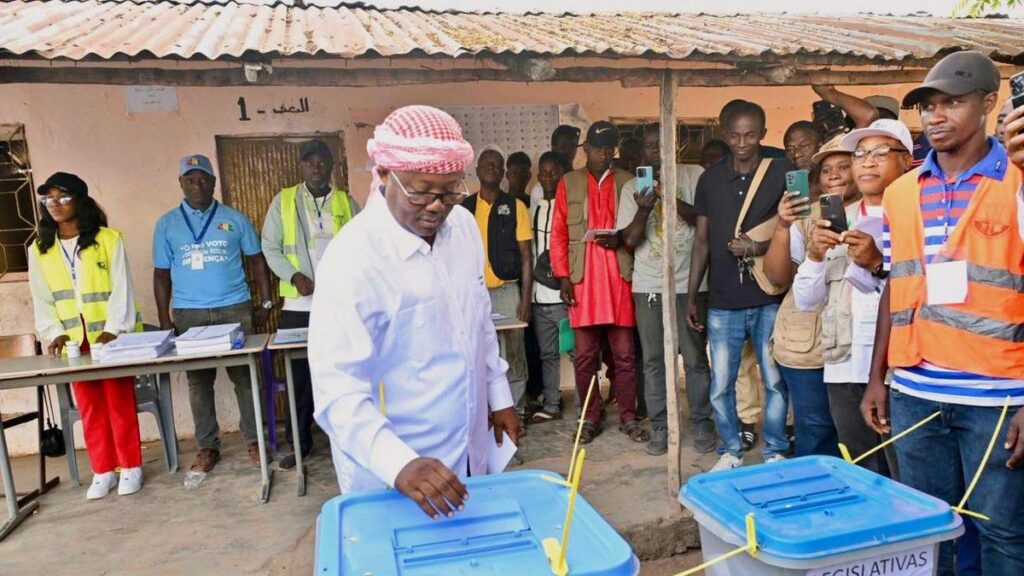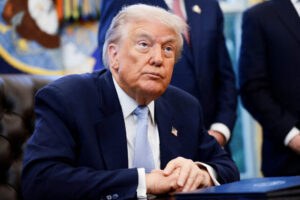
A group of army officers in Guinea-Bissau has announced that they have seized control of the country, just before the expected announcement of results from a closely contested presidential election held on March 10, 2024. In a statement broadcast on state television, the officers declared that they had deposed President Umaro Sissoco Embalo, suspended the electoral process, closed the nation’s borders, and imposed a curfew.
The military leaders established a governing body named The High Military Command for the Restoration of Order, asserting that they would manage the country until further notice. Dinis N’Tchama, the spokesperson for the military command, claimed the coup was a response to “the discovery of an ongoing plan” intended to destabilize Guinea-Bissau. He alleged that both “domestic and foreign citizens” attempted to “manipulate electoral results to implement this plan.”
Gunfire erupted shortly before the announcement near key government buildings, including the electoral commission headquarters and the presidential palace. Witnesses reported that the gunfire lasted for approximately one hour, though no casualties have been confirmed. The electoral commission was scheduled to release provisional results from the election where Embalo faced significant opposition from Fernando Dias. Both candidates had claimed victory in the initial round of voting.
This election was particularly significant as Embalo sought to become the first president in three decades to win a second consecutive term in Guinea-Bissau, a small coastal nation located between Senegal and Guinea. The election results were highly anticipated, and the abrupt military takeover has thrown the political landscape into uncertainty.
A spokesperson for Embalo, Antonio Yaya Seidy, accused unidentified gunmen of attacking the electoral commission to prevent the announcement of results. He alleged that the assailants had ties to Dias, though no evidence was provided to support this claim. In contrast, a representative for Dias did not respond to requests for comment on the incident.
Former Prime Minister Domingos Simoes Pereira, who previously lost to Embalo in a disputed runoff in 2019 and has supported Dias in the current election, insisted that Dias was not involved in the violence. Pereira recounted that Dias was meeting with election observers when the gunfire erupted, stating, “Some people erupted in the room to announce that there were gunshots in the centre of the town.” He confirmed that Dias was safe and remained in the capital, Bissau.
Guinea-Bissau has a tumultuous history, marked by at least nine coups and attempted coups since gaining independence from Portugal in 1974. Since taking office in 2020, Embalo has claimed to have survived three coup attempts. Critics of his administration have accused him of orchestrating crises as a pretext for crackdowns on dissent.
The unfolding situation in Guinea-Bissau remains fluid, with the military’s intentions and the future of the electoral process unclear. As the international community watches closely, the immediate focus is on the safety of civilians and the potential for further unrest in the region.







